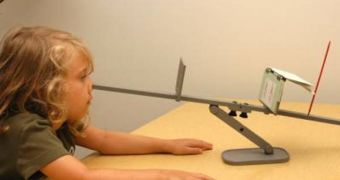University of Houston experts argue that eye exercises may be the optimum solution and cure to a number of vision-related illnesses. It may be that training the muscles of the eyes, and also the retina itself could heal a number of conditions that have thus far required a lot of very expensive drugs. UH College of Optometry clinical associate professor Dr. Janice Wensveen believes that certain routines of the eyes can be of use to anyone, not just to those suffering from vision loss or to those who wear glasses.
“They're curious, especially when we tell them, instead of putting a Band-Aid on it like we do with glasses or contact lenses, we're actually going to solve your problem. You're going to be cured, and that's something we don't very often do,” Wensveen says of the patients' reactions when they hear about the exercise routine.
“Patients visually follow a small letter on a pencil as they move the pencil closer to the nose. The goal is to be able to keep the letter clear and single until it touches your nose. You can imagine that, in the doctor's office, it sounds great, and you can do it. You think, 'Wow, this can help me?' But you get home, and you do it. You think, 'This is really dumb.' You do it once, and you never do it again,” she explains, adding that not many patients continue the therapy once they're out her door.
“Studies would suggest there is a possible relationship between convergence insufficiency and ADHD, in that about 10 percent of patients with convergence insufficiency had a history of ADHD at initial presentation or in follow-up exams. While the research does not support a direct relationship between the two diagnoses, it is recommended that evaluation of convergence insufficiency should be undertaken in children diagnosed with ADHD,” University Eye Institute executive director Dr. Nick Holdeman adds, highlighting a new use for Wensveen's therapy.
“It's like using a physical trainer or a physical therapist. We will work with you to ensure that you do make progress toward being able to use your eyes comfortably and efficiently,” Wensveen concludes.

 14 DAY TRIAL //
14 DAY TRIAL //